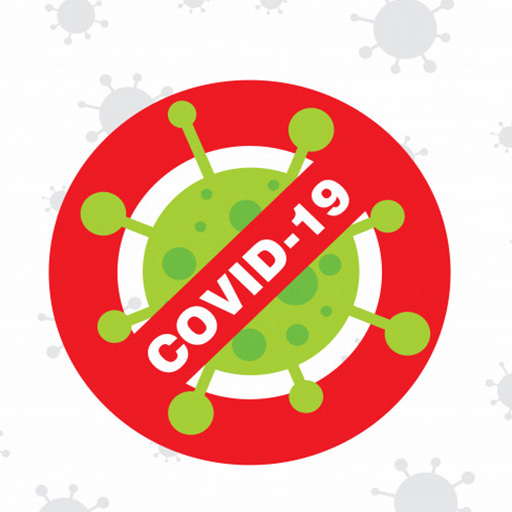The role of institutional collaborations in combating covid-19 in dessie, south wollo and oromia special zones of eastern amhara, Ethiopia
Abstract
COVID-19, declared as a global pandemic by WHO, is the ‘eye and ear’ of the world and disturbed the economic, social and political situations of almost all countries regardless of the economic development. In an effort to combat the virus, this descriptive survey tried to assess the role of institutional collaborations in Dessie City Administration, South Wollo and Oromia Special zones of Amhara National Regional State, Ethiopia. It also tried to examine the material, financial, technical supports and leadership commitment in combating COVID-19.A total of 385 purposely selected samples of institutions from government, private and NGOs were surveyed in 7 Woredas. Primary sources of data were used using questionnaire, interview and focus group discussions. Moreover, secondary sources of data mainly reports of anti-corona task forces reports were also used. The results of the study shows that an average financial and technical supports were provided in an effort to combat the pandemic. A below average material support and above average leadership commitments that results in an average overall outcomes of institutions collaboration in combating COVID-19 was exhibited in the study. The correlation result also found that material, financial, technical supports and leadership commitment has a significant positive impact on the outcomes of institutional collaborations in combating COVID-19.The study concluded that institutional collaboration played its own role in combating COVID-19. The study recommended that anti corona task forces organized in combating the virus from federal to Kebele level should incorporate non-government institutions together with government institutions as a member in the team so that all members of the community can be reached in an effort to mobilize adequate resources in tackling the problem.
References
Ababa, C. (2013). Factors influencing sustainability of rural community water projects in Kenya (1st ed.). Nairobi: University of Nairobi.
Adhiambo, L. (2012). Factors Affecting the Effectiveness of Donner Funded Projects in Akerland. Journal Of Community Psychology, 6(28), 353-362.
Armitage, J. (2003). The Institutional Origins of Dynamic Capabilities in Multinational Enterprises, Industrial and Corporate Change.
Batti, R. (2014). Challenges Facing Local NGOs in Resource Mobilization. Humanities and Social Sciences, 2 (3), 57 - 64.
Bollinger, A. and Smith, R. (2001). Managing organizational knowledge as a strategic asset. Journal of Knowledge Management, 5(1), pp. 8-18. https://doi.org/10.1108/13673270110384365
Chappel(2005).Art and Wellbeing.Sydney, Austrlia: Australia council of arts.
Cohen, W.M., Nelson, R.R. and Walsh, J.P. (2002). Links and Impacts: The Influence of Public Research on Industrial R&D. Management Science, 48(1), pp. 1–23.
Cochran, W. G. (1963). Sampling Techniques, 2nd Ed., New York: John Wiley and Sons, Inc.
Crosby, P. B. (1989) Let’s talk quality. New York: McGraw-Hill.
Cyert, R.M. (1991). Knowledge and Economic Development. Operations Research, 39(1), pp. 5–8. https://doi.org/10.1287/opre.39.1.5
Dill, D. and & Vught, F. (2010) National Innovation and the Academic Research Enterprise. Baltimore, MD: John Hopkins University Press.
Etzkowitz, H. (2003). Innovation in Innovation: The Triple Helix of University-Industry-Government Relations. The Social Science Information, 42(3), pp. 293-337. https://doi.org/10.1177/05390184030423002
Gimenez-Espin JA, Jiménez-Jiménez D, Martínez-Costa M (2013). Organizational culture for total quality management. Total Quality Management& Business Excellence;24(5–6):678–692.
Githinji, C. (2013). Factors affecting sustainability of community based projects in Kitui County, Kenya. Nairobi: Kenyatta University.
Lee, Y., (2011). University-Industry Collaboration on Technology Transfer: Views from the Ivory Tower. Policy Study Journal, 26, 69-84.
Mavoko, M. (2013). Resource mobilization for NGOs in the developing. London: Adonis and Abbet Publishers Limited
Muijs, D. (2010). Doing quantitative research in education with SPSS. Sage. multidimensional organization culture and performance”, International Journal of Operation & Production Management, Vol. 31, No. 7, pp. 712-735.
Mulwa, F. (2010). Demystifying Participatory Community Development (Revised edition). Nairobi.: Pauline's Publications Africa.
Prajogo, D.I. and McDermott, C.M. (2011), “The relationship between
Psychometrical, vol.16, no. 3, pp. 297-334.
Saunders, M., Lewis, P., & Thornhill, A. (2009) Research Methods for Business Students (5th. ed., pp. 318-359). Harlow: Pearson Education.
Scot, S. (2004). Variation in Spinoff Activities Across Institutions. In Academic Entrepreneurship: University Spinoffs and Wealth Creation. Edward Elgar Publishing.
Smith, K. M., Machalaba, C. C., Seifman, R., Feferholtz, Y., & Karesh, W. B. (2019). Infectious disease and economics: The case for considering multi-sectoral impacts. One Health, 7, 100080.
World Health Organization [WHO] (2020b). Coronavirus disease 2019 (COVID-19) Situation Report – 46. https://www.who.int/docs/default-source/coronaviruse/situationreports/20200306-sitrep-46-covid 19.pdf?sfvrsn=96b04adf_2
Zu, X., Robbins, T. L., & Fredendall, L. D. (2010). Mapping the critical links between organizational culture and TQM/Six Sigma practices. International Journal of Production

In submitting the manuscript to the International Journal on Integrated Education (IJIE), the authors certify that:
- They are authorized by their co-authors to enter into these arrangements.
- The work described has not been formally published before, except in the form of an abstract or as part of a published lecture, review, thesis, or overlay journal.
- That it is not under consideration for publication elsewhere,
- The publication has been approved by the author(s) and by responsible authorities – tacitly or explicitly – of the institutes where the work has been carried out.
- They secure the right to reproduce any material that has already been published or copyrighted elsewhere.
- They agree to the following license and copyright agreement.
License and Copyright Agreement
Authors who publish with International Journal on Integrated Education (IJIE) agree to the following terms:
Authors retain copyright and grant the International Journal on Integrated Education (IJIE) right of first publication with the work simultaneously licensed under Creative Commons Attribution License (CC BY 4.0) that allows others to share the work with an acknowledgment of the work's authorship and initial publication in this journal.





1.png)
